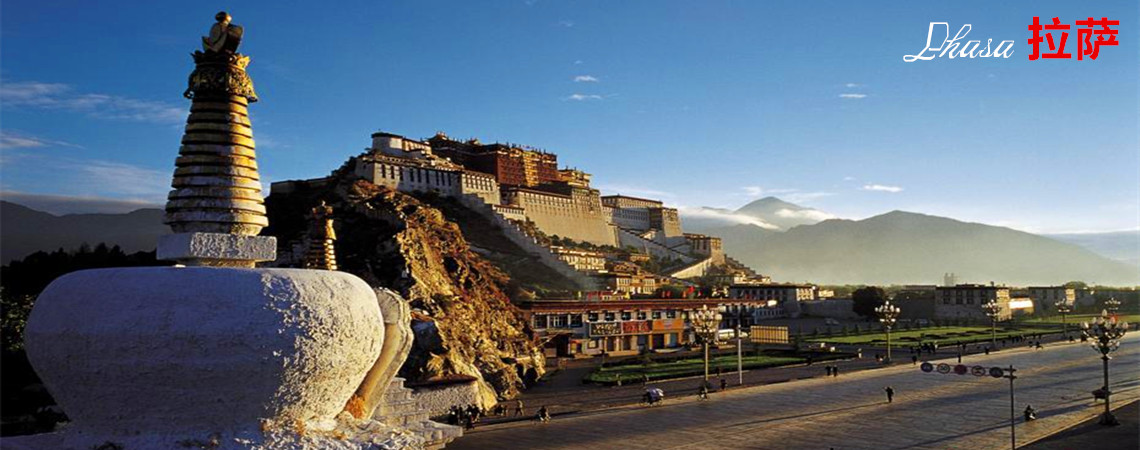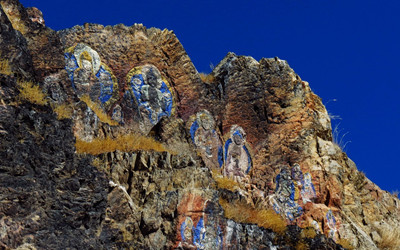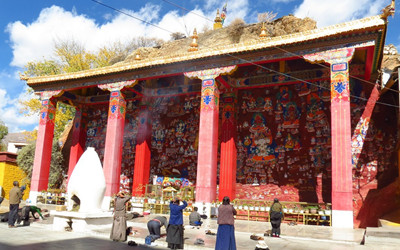Skype: neodalle-travel
Tel: +86 135 7447 2266
E-mail: sales@visitaroundchina.com

Legend and History
 During the middle of 17th century, in the early Qing Dynasty, a temple was erected on the top of the mountain. Within this temple was placed a sapphire figure of a certain Tibetan Medicine King. Legend has it that the King was the avatar of Sakyamuni, who was able to treat patients no matter what the disease or how difficult the cure. During the period of the fifth Dalai Lama (1642-1682), lamas from all over the country were brought to this temple to systematically study and coordinate the knowledge of traditional Tibetan medicine. Later, the temple became the Tibetan Medicine Bureau, but over time it fell into ruin.
During the middle of 17th century, in the early Qing Dynasty, a temple was erected on the top of the mountain. Within this temple was placed a sapphire figure of a certain Tibetan Medicine King. Legend has it that the King was the avatar of Sakyamuni, who was able to treat patients no matter what the disease or how difficult the cure. During the period of the fifth Dalai Lama (1642-1682), lamas from all over the country were brought to this temple to systematically study and coordinate the knowledge of traditional Tibetan medicine. Later, the temple became the Tibetan Medicine Bureau, but over time it fell into ruin.
What to see?
 Quite a few figures of Buddha, gods in different poses, and Buddhist scripture in Tibetan characters are engraved on the cliff. There is an extremely well preserved grotto with a history of more than a thousand years on the southeast mountainside. The grotto is 27 square meters and in the shape of unequal rectangle. There are 69 stone statues engraved on the rock, vivid and lifelike, which represent the soul of Tibetan stone inscription art. At the north foot of the mountain is a spring. The fountain, pure and sweet, was named "Holy Water". It is said that the fountain was the favourite of the Dalai Lama half a century ago.
Quite a few figures of Buddha, gods in different poses, and Buddhist scripture in Tibetan characters are engraved on the cliff. There is an extremely well preserved grotto with a history of more than a thousand years on the southeast mountainside. The grotto is 27 square meters and in the shape of unequal rectangle. There are 69 stone statues engraved on the rock, vivid and lifelike, which represent the soul of Tibetan stone inscription art. At the north foot of the mountain is a spring. The fountain, pure and sweet, was named "Holy Water". It is said that the fountain was the favourite of the Dalai Lama half a century ago.
 Chakpori Hill (Yao Wang Shan) is also the ideal location for taking photographs of Potala Palace. In the early morning of holidays or peak seasons, dense crowds of photographers and photography aficionados come here to shoot a rare view of Potala Palace irradiated by the first rays of the sun.
Chakpori Hill (Yao Wang Shan) is also the ideal location for taking photographs of Potala Palace. In the early morning of holidays or peak seasons, dense crowds of photographers and photography aficionados come here to shoot a rare view of Potala Palace irradiated by the first rays of the sun.
 Ask Questions ?
Ask Questions ?